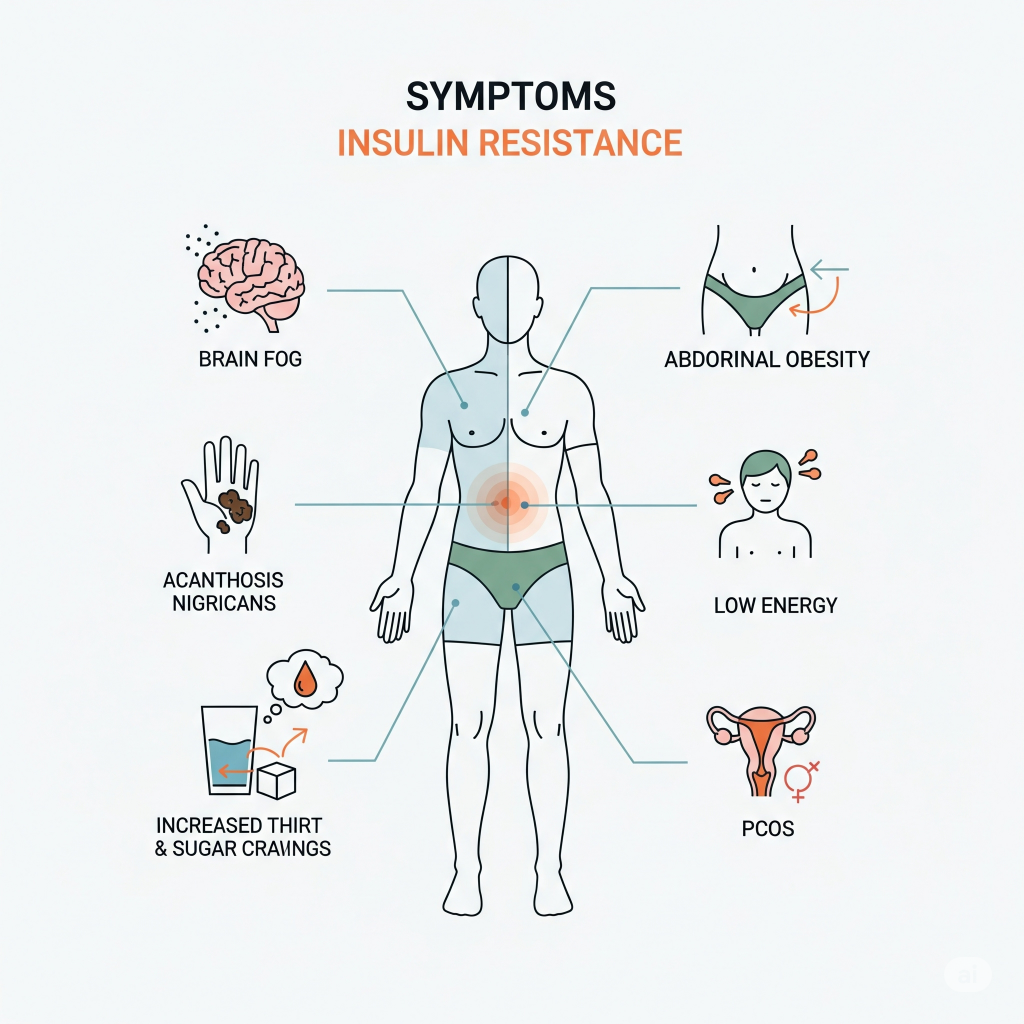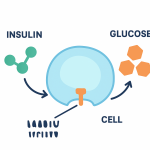
Insulin Resistance: The Silent Driver of Disease
Health experts are increasingly pointing to insulin resistance as a hidden driver behind many of today’s chronic illnesses. From obesity to cancer, this metabolic condition is proving to be more influential than once thought.
In a recent presentation, Dr. Ben Bikman, a leading metabolic scientist, argued that insulin resistance is the common thread linking numerous diseases. Conditions such as type 2 diabetes, Alzheimer’s, fatty liver disease, infertility, and even certain cancers including breast and prostate—can all be traced back to the body’s diminished ability to respond to insulin.
“Every cell in the body is affected by insulin,” Bikman emphasized, highlighting the hormone’s central role in long-term health.
What Is Insulin Resistance?
Insulin resistance occurs when the body’s cells stop responding effectively to insulin, the hormone that regulates blood sugar. As a result, glucose builds up in the bloodstream, forcing the pancreas to produce even more insulin. Over time, this imbalance can damage multiple organs and trigger disease.
What Is Insulin — And Why Should You Care
Understanding insulin is only half the battle. Building healthier daily habits can make a huge difference — I cover this in my Everyday Mastery guide to habits that transformed my life
Tracking Blood Sugar with CGMs
Dr. Bikman also discussed the growing use of continuous glucose monitors (CGMs). He explained that their real value lies not in single readings but in tracking glucose trends throughout the day, especially after meals.
According to Bikman, healthy blood sugar should return to baseline within two hours of consuming carbohydrates. When it does not, it may signal underlying metabolic problems. He also warned that ectopic fat—fat stored in organs like the liver and muscles—is closely tied to insulin resistance, although the exact cause-and-effect is still under study.
The Role of Fats, Sugars, and Processed Foods in Insulin Resistance
Harmful lipid molecules called ceramides, often formed from saturated fats, can block insulin signalling pathways. However, monounsaturated and polyunsaturated fats do not appear to cause this disruption.
While Bikman cautioned against seed oils, he was clear that the bigger culprits are refined sugars and starches. These processed carbs frequently appear alongside seed oils in packaged foods, making them particularly damaging to metabolic health.
Why Low-Carb Diets Have an Edge
Low-carb and ketogenic diets offer a clear advantage, according to Bikman. These eating patterns can boost metabolic rate and allow people to eat more calories while still maintaining or losing weight.
Exercise also matters. Both high-intensity interval training (HIIT) and strength training improve insulin sensitivity. They do this by increasing lactate production, which helps transport glucose into cells even without insulin.
Beyond Calories: Why Insulin Timing Matters
Challenging the old “calories in, calories out” model, Bikman urged people to focus on lowering insulin levels first.
He noted that late-night eating is especially harmful. Meals consumed before bed often lead to higher insulin spikes, poorer sleep, and greater metabolic dysfunction. In contrast, shifting calories earlier in the day supports both insulin control and recovery.
Medications and Hidden Risks
Everyday medications can also affect metabolic health. For example, certain antidepressants are linked to weight gain and insulin resistance. On the dietary side, Bikman explained that combining protein with fat may aid digestion by stimulating bile release, which activates enzymes for protein breakdown.
Global Diabetes Rates
Looking at worldwide diabetes data, Bikman pointed out striking differences. The United States ranks around 70th, while Middle Eastern countries such as Oman, the UAE, and Jordan have much higher rates. Meanwhile, places like Singapore and Japan remain far lower. These differences highlight the role of ethnicity, diet, and lifestyle in shaping metabolic health.
GLP-1 Drugs: Benefits and Limitations
Drugs such as Ozempic, which act on GLP-1 receptors, have grown popular for weight loss and blood sugar control. Bikman cautioned, however, that high doses may cause unwanted muscle and bone loss. He suggested that lower doses may be more effective for people who struggle to metabolize carbohydrates efficiently.
The Breakfast Fix: A Simple Lifestyle Shift
Finally, Bikman highlighted one of the most practical changes people can make: adjusting breakfast. He emphasized that fasting insulin—not fasting glucose—is the most important biomarker for long-term metabolic health.
Delaying or modifying breakfast to extend the fasting window can improve insulin sensitivity and enhance energy throughout the day.
Key Takeaway
As science continues to uncover the impact of insulin resistance, Bikman’s message is clear: managing insulin—not just calories or blood sugar—may be the key to preventing and reversing today’s most common health problems.
Dr. Ben Bikman is a research scientist and professor specializing in metabolic health, particularly insulin resistance and its connection to chronic diseases. He is widely recognized for his work on how insulin impacts weight control, aging, and disease risk.
He is the author of Why We Get Sick and the host of The Dr. Bikman Podcast, where he shares evidence-based insights on nutrition, exercise, and long-term health.
Dr Bikmans PODCAST
To turn these insights into practical daily habits and improve your metabolic health, check out Everyday Mastery for guides, tips, and step-by-step routines

